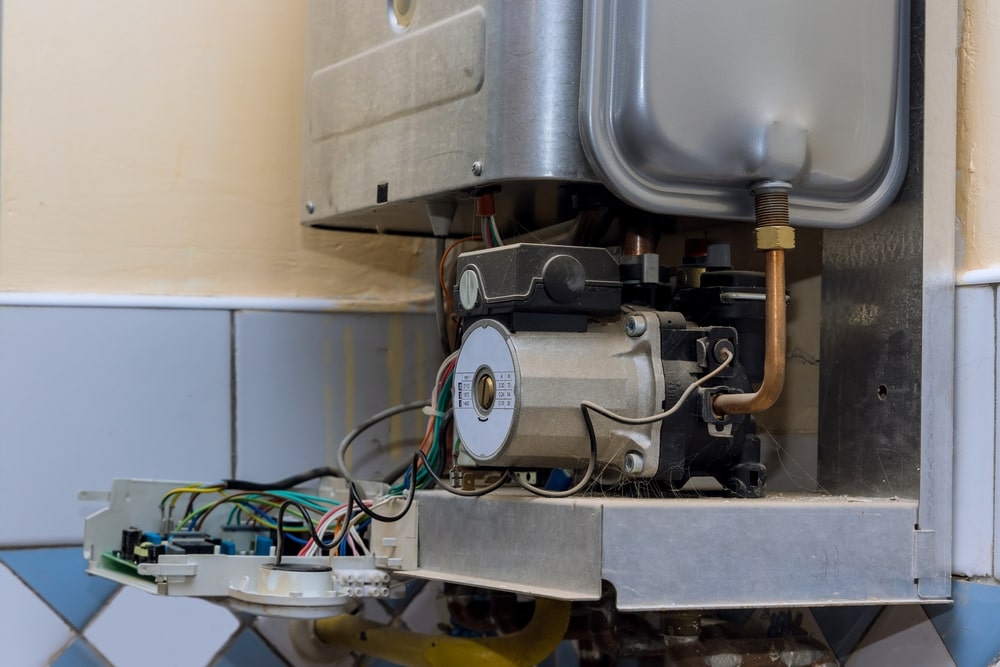
A water heater is essential in any home, providing hot water for showers, washing dishes, and laundry. But what happens when your water heater breaks down? Is a broken water heater an emergency, or can it wait for a scheduled repair? Understanding when to act quickly and when to schedule a regular maintenance check is crucial.
This article will guide you on knowing if your water heater is broken, what constitutes an emergency requiring professional plumbers’ attention, and specific issues like a broken dip tube water heater. By the end, you’ll have a clear idea of what steps to take to ensure your home stays safe and comfortable.
Signs Your Water Heater Is Broken
Recognizing the signs of a faulty water heater early can save you from significant hassle and potential damage. Here are common indicators:
No Hot Water
This is the most obvious sign. If you’re getting cold water instead of hot, your water heater might be broken. Check whether the pilot light is on or the circuit breaker has tripped.
Strange Noises
Hearing rumbling, popping, or banging sounds from your water heater can signal a problem. These noises often indicate sediment buildup or other internal issues.
Leaking Water
Water pooling around your water heater clearly indicates trouble. A leak could be due to a broken valve or corrosion in the tank, which needs immediate attention.
Rusty Water
If the hot water from your taps is rusty, it might mean your water heater is corroding.
Fluctuating Water Temperature
Inconsistent water temperature can indicate a malfunctioning water heater. If your showers alternate between scalding and freezing, it’s time to inspect the heater.
Low Hot Water Pressure
Sediment buildup in the tank or pipes can reduce water pressure. This problem often occurs in conjunction with other signs of a broken water heater.
Is a Broken Water Heater an Emergency?
Determining whether a faulty water heater is an emergency depends on several factors:
Extent of the Problem
Minor issues like a pilot light going out can usually wait for regular business hours. However, significant leaks or complete failures might need immediate attention.
Season and Weather
During colder months, a broken water heater can be more urgent because hot water is needed to prevent pipes from freezing.
Household Needs
Families with infants, elderly, or sick individuals may find a lack of hot water more urgent than others.
While some issues can wait, others, especially those involving water leaks or no hot water, should be treated as emergencies.
How to Know if Your Water Heater is Broken
Assessing if your water heater is broken involves checking the following:
Pilot Light
Ensure the pilot light is lit for gas water heaters. If it’s out, try relighting it according to the manufacturer’s instructions.
Circuit Breaker
Check if the circuit breaker has tripped for electric water heaters. Resetting it might solve the problem.
Thermostat Settings
Sometimes, adjusting the thermostat can fix temperature issues. Ensure it’s set to the recommended temperature (usually around 120 degrees Fahrenheit).
Visual Inspection
Additionally, look for obvious signs like leaks, rust, or damage. If you see water around the heater, it might indicate a more severe problem.
Noise Check
Listen for unusual noises, indicating internal issues like sediment buildup.
Broken Dip Tube Water Heater
A specific problem that can arise is a broken dip tube water heater. The dip tube is a long plastic tube that directs cold water to the bottom of the tank to be heated. If it breaks, cold water mixes with hot water at the top, resulting in lukewarm or cold water from your taps. Signs of a broken dip tube include:
Sudden Drop in Water Temperature
If your hot water is suddenly cooler than usual, it might be due to a broken dip tube.
Plastic Debris in Filters
Small plastic pieces in your faucet aerators or showerheads can indicate a deteriorating dip tube.
Hot Water Runs Out Quickly
A broken dip tube means only some of the water in the tank is being heated properly, leading to quicker depletion of hot water.
When to Call a Professional
If you notice any of the signs mentioned above, it’s wise to consult a professional. Attempting DIY fixes for a broken water heater can be dangerous and may lead to more severe damage or injury. Therefore, our water heater repair specialists can accurately diagnose the problem and provide the necessary repairs, ensuring your system is safe and functional.
Taking the Right Steps
If you’re dealing with a broken water heater, it’s essential to determine the severity of the issue. While some problems can wait for a regular service appointment, others require immediate attention. By understanding the signs of a faulty water heater, such as inconsistent temperatures, strange noises, or leaks, you can decide when to call for help.
If you need professional assistance, we at On Point Plumbing DFW are here to help. Our expert team is ready to address any water heater issues. Don’t hesitate to reach out and ensure your home remains safe and comfortable.
